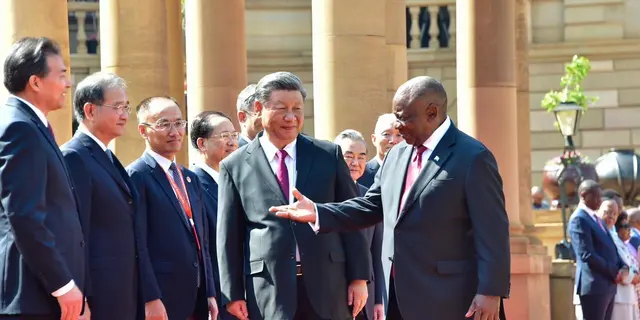Western influence as Putin dodges summit over arrest fears

As members of the China- and Russia-led BRICS economic bloc gather in South Africa for a summit, they remain divided on how to proceed with aggressive expansion.
Rebekah Koffler, president of Doctrine & Strategy Consulting and a former Defense Intelligence Agency officer, says Washington cannot ignore this movement because it is gaining traction.
“It won’t happen this year or next, but unless Washington takes it seriously and restores global confidence in the U.S. dollar, stops using it as a weapon of economic warfare rather than what was intended for economic, not political purposes, it will happen gradually,” she added.
Because of concerns that he might be arrested by the International Criminal Court over alleged child abduction crimes related to the invasion of Ukraine, Russian President Vladimir Putin has abstained from attending the summit, but the event is still expected to be filled with drama.
CHINESE OFFICIALS TO MEET WITH US COMMERCE SECRETARY TO STABILIZE RELATIONS
It started out with all but South Africa in 2001, adding its fifth member in 2010. BRICS stands for Brazil, Russia, India, China, and South Africa. Prior to its summit in Johannesburg, the group announced it was considering a wider membership expansion. It has also discussed creating a new internal currency similar to the Euro that its members could use in trades and exchanges, which some experts fear would become a strong rival to the dollar.
The plans do not seem to have universal support: BRICS on Monday approved a plan for New Development Bank (NDB) to provide the first Indian rupee bond by October, but some members hoped to improve local currency strength before considering a shared currency, Reuters reported.
POLITICAL UNREST CONTINUES AS AFRICAN PRESIDENT WARNS OF ‘OPPORTUNITY’ FOR RUSSIA
As part of its efforts to take economic superiority away from the West, the bloc created the NDB. Initially, the bank would have enabled members to use funds from other members for local projects, such as South African construction projects funded with Chinese yuan.
